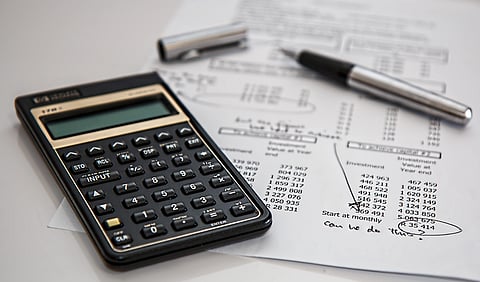

NEW DELHI: Most of the bankers must have received notice from their banks on tokenisation, saying that from January onwards, when you make the first payment to any merchant, you will need to give him/her your consent with an additional factor of authentication (AFA). Once done, you will complete the payment by keying in your card’s CVV and OTP.
While two days back, the Reserve Bank of India deferred implementation of tokenisation for six months till June, 2022, there are many new rules including higher charge for ATM transaction, new EPF rule and others which will be effective from January 1 which will have an impact on your personal finances.
New Charges for ATM Withdrawal
Be ready to shell out more money on ATM transactions if you exceed the free ATM transaction limit from January 1, 2022. This rule comes after the RBI order that permitted banks to increase charges for cash and non-cash ATM transactions beyond the free monthly permissible limit. This will go up to Rs 21 per transaction. So, you can do five transactions from your own Bank ATM and three free transactions from other bank’s ATM. The move will certainly hurt those who deals in cash and need to withdraw cash frequently.
India Post
If you have an account in India Post Payments Bank (IPPB) then you will have to bear charges on depositing cash in your accounts from next year, if they exceed the prescribed limit. In the savings (other than Basic SA) and current accounts, the cash deposits will be free up to `10,000 per month and thereafter, a charge of 0.50% of the value subject to minimum `25 per transaction will be levied.
New EPF Rule
Employees Provident Fund (EPF) account holders will need to add a nominee by December 31. If this is not done, the employees will lose on several benefits from January 1 onwards. For instance, only, nominated members can withdraw the EPF savings in the event of subscribers’ sudden demise. Subscribers can nominate more than one nominee and also fix the percentage of sharing among all such nominees. One can do it online but for that, EPF subscribers must have an active Universal Account Number (UAN) and Aadhaar details should have been seeded to their EPF account.
New GST rules
Several goods and services are going to get expensive the new year as GST rates on them would go up. In order to mitigate the inverted duty structure, many goods like textile, footwear would attract 12% GST against 5% now.
Food delivery by Swiggy, Zomato will also get costlier from 1 January as users will have to pay 5% GST on delivery from these Apps. Earlier, no GST was levied on food delivery apps, but now these apps will have to collect and deposit GST with the government, instead of what is currently done by the restaurants.
Also, GST will be leviable on services provided by club or association to its members retrospectively from 1 July 2017. For businesses, now they will require to be extra careful in filling GST return. From January 1, GST officers can directly initiate recovery action against errant businesses that show higher sales in monthly return GSTR-1 but under-report it while tax payment in GSTR-3B.
This means that GSTR -3B and GSTR-1 should match with each other, and no differences should be permitted in the same irrespective of the reasons. Centre government says that this will prevent underreported GST returns. Also from January 1, Aadhaar authentication of registration will be mandatory for being eligible for filing refund claim and application for revocation of cancellation of registration by GST assesses.
New GST rules from January 1
Many goods like textile and footwear would now attract 12% GST against 5%
Food delivery by Swiggy, Zomato will also get costlier from 1 January as users will have to pay 5% GST on delivery from these Apps
GST officers can directly initiate recovery action against errant businesses that show higher sales in monthly return GSTR-1 but under-report it while tax payment in GSTR-3B
Aadhaar authentication of registration will be mandatory for being eligible for filing refund claim and application for revocation of cancellation of registration by GST assesses